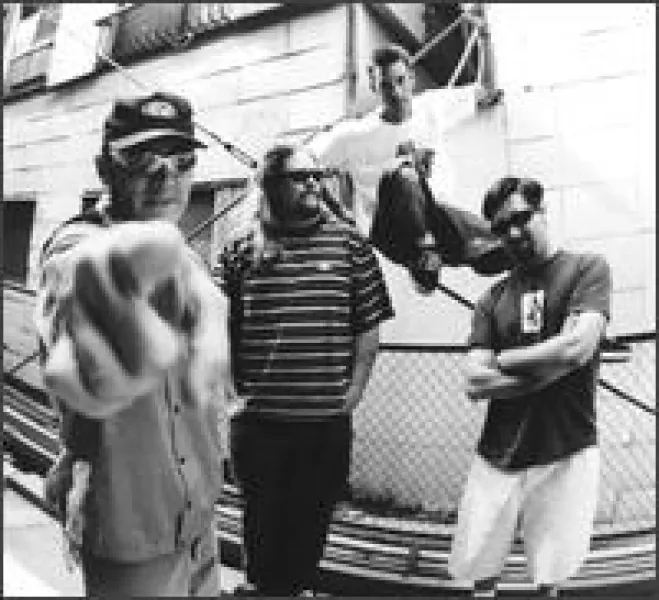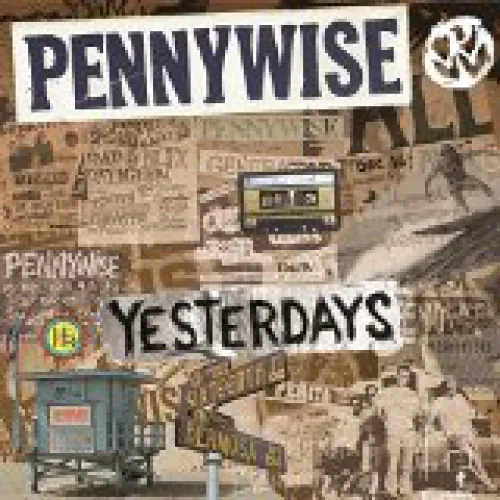
Pennywise
Top Pennywise albums
Top Pennywise lyrics
30 Seconds 'till The End Of The World
PennywisePennywise biography
Pennywise was one of the key bands of the punk-revival of the '90s. Using Californian hardcore as a foundation, the group incorporated funk-metal and skate-punk into their sound, developing a sound that functioned as edgy, post-punk frat rock -- it was speedy and occasionally stupidly catchy, with heavy, propulsive rhythms and positive, optimisitic lyrics that stood in pointed contrast to their grunge-addled peers. Through constant touring and recording, as well as appearences on surfing and snowboarding concerts and videos, Pennywise developed a dedicated following among post-hardcore punk audiences, and were positioned to follow Bad Religion, Green Day and the Offspring into the modern rock mainstream, but internal problems, culminating in the 1996 suicide of founding ba**ist Jason Thirsk, prevented the band from being anything larger than a popular cult band in the vein of NOFX.br /br /Jim Lindberg (lead vocals), Fletcher Dragge (guitar), Byron McMackin (drums) and Jason Thirsk (ba**) formed Pennywise in 1988. All of the members attended the same high school in Hermosa Beach, California, where they were involved with both punk rock and surfing. Thirsk had played in a local hardcore band called PMA, while the other members played with several other groups before the band actually came together. In 1989, they released their debut EP A Word from the Wise on Theologian Records. A local college DJ pa**ed the record to Brett Gurewitz at Epitaph Records, and he signed the group in 1990. Pennywise's eponymous, full-length debut appeared the following year. Pennywise became a word-of-mouth hit among the underground punk, surf and snowboarding community, and the group headed out on their first national tour. br /br /Six months after the group's debut was released, Lindberg left the group due to his frustration with the band's lack of motivation and the lack of security in rock groups. Thirsk moved to vocals and his ba** teacher, Randy Bradbury, filled in on ba**. Following his departure, Theologian released the previously unissued Wildcard EP, backing it with A Word from the Wise on its CD release. While he was separated from the band, Lindberg married, but decided to rejoin the group in late 1992. At the time, Pennywise was attempting to record its second album at the time with Thirsk on vocals, and they were glad to have him back. During his time off, Pennywise had decided to focus on their career, and that increased focus was apparent on their second album, 1993's Unknown Road. Due to constant touring and appearances on snowboarding and surfing videos, the album sold around 200,000 copies. Before they recorded their third album in early 1995, Pennywise was courted by several major labels, who approached the band following the unexpected multi-platinum breakthrough success of Green Day and the Offspring. The band elected to stay with Epitaph and completed About Time, which was released in the summer of 1995. About Time became an indie hit, and the band's live shows became popular attractions. In particular, Dragge became notorious for vomiting on his audience, most notoriously on DJ Ricki Rachtman at a show for the influential alternative radio station KROQ, as a veiled protest against the station.br /br /As the band were preparing to record their fourth album in the summer of 1996, Jason Thirsk took a leave of absence from the group to try to control his growing alcoholism; Randy Bradbury had again stepped into the ba**ist role for Pennywise, and he was scheduled to move to rhythm guitar once Thirsk conquered his addiction. Sadly, Thirsk was unsuccessful; on July 29, 1996, he committed suicide after a drinking binge. Pennywise was shaken by his d**h, yet they decided to continue performing, adding Bradbury as a permanent member. The band's fourth album, Full Circle, was released in April 1997; Straight Ahead followed two years later. In fall 2000, Pennywise trudged on to release the live album Live at the Key Club, which was recorded at the tiny club in Los Angeles in front of a crowd of 600 fans on the band's previous tour. New studio albums followed in 2001 (Land of the Free?) and 2003 (From the Ashes). Pennywise had always been political, confrontational. But Ashes amplified those notions with its reaction to the volatile political climate in America on the eve of the 2004 presidential elections. When the band returned in August 2005 with Fuse they were no less conscious of politics and society. But the album also returned to a more muscular sound, and included a few cla**icist punk rock anthems for the kids to believe in. ~ Stephen Thomas Erlewine, All Music Guide

